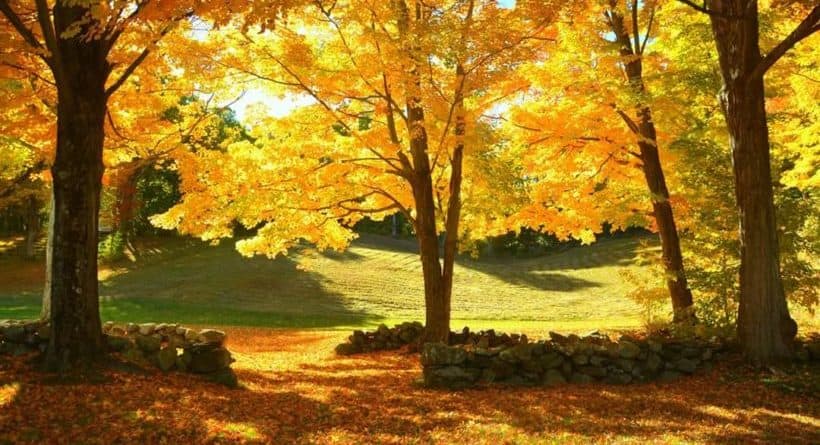Editor’s note: The University of New Hampshire Cooperative Extension provides weekly gardening columns in which Jeremy DeLisle answers questions from local gardeners.
We are now in the second half of October and the weather forecast predicts cooler temperatures to come. Plant growth is slowing down rapidly, reminding us that now is the time to take action to ensure a successful season next year.
Protect sensitive plants from frost
As night temperatures begin to drop, the first order of business should be harvesting heat-loving vegetables and ornamentals that won’t tolerate frost. Tomatoes and peppers are obvious examples, but even potatoes and winter squash don’t stand to gain anything by remaining in the garden once the tops begin to die down.
Other plants needing immediate attention are geraniums, begonias, fuchsias, and many of our summer bulbs including dahlia, canna, and elephant ear. For specific information on winter care of these species contact the Education Center.
Tidy up beds
Clean up annual beds, but take advantage of fall leaves for additions of organic matter. Shred the leaves with a lawn mower and apply as a top-dressed mulch. For best results, add compost and manures into the top few inches of soil. Avoid leaving bare soil at all costs.
Perennial beds should also be tidied up, but don’t overdo it. Remove diseased top growth, but consider leaving seed heads that may provide winter interest and food for wildlife. Healthy top growth can often be returned to the soil as mulch or composted for next season.
Tree and shrub care
Remember that some trees and shrubs require winter protection as well. Thick-barked trees such as ornamental cherries often suffer from winter damage, often described as southwest injury. In winter, sun reflects off the snow on the southwest side of the tree, thawing the snow during the day. The melted snow then refreezes as temperatures drop at night. Over time this freezing and thawing can result in bark damage and, eventually, more serious permanent damage. To avoid this issue, consider wrapping sensitive trees with plastic or paper tree guards. Burlap screening also offers the same protective effect. Remove these protective materials once the snow melts in spring.
Shrubs planted under house eaves often take a beating when snow and ice come crashing down on them. Protect them with homemade wooden framing or store bought covers made from steel rods and synthetic fabric.
Prune appropriately
Delay most tree and shrub pruning until the plants are completely dormant. Pruning before dormancy can result in poor wound healing or unwanted growth that may not tolerate winter temperatures. To be sure plants are in full dormancy, gardeners often wait until mid-February to tackle pruning woody ornamentals. Remember, plants that bloom before mid-June should be pruned just after flowering is completed, so consider bloom times to avoid snipping off potential flower buds.
Mulch should be applied once the ground has cooled down and plants have gone dormant. Although the goal is to use the mulch as insulation, it should keep the plants cold throughout the dormant season. Three to four inches of mulch will keep plants hardy, so they aren’t damaged should a sudden cold snap return.
Test your soil
If you haven’t submitted a soil sample from your garden, make this the year you get it done. Knowing which nutrients are plentiful or scarce in your soil may be the most important factor in growing a successful garden. Collect your samples before the ground freezes and within three weeks you will have your results.
UNH Cooperative Extension and the University of New Hampshire provide soil analysis and nutrient recommendations. All soil testing details, including information on how to take a soil sample and the soil testing form, are available on the Cooperative Extension’s website.
Jeremy DeLisle is the program coordinator for the UNH Cooperative Extension Education Center. The center answers questions about gardening and more at answers@unh.edu, or by calling 877-398-4769 Monday through Friday, between 9 a.m. and 2 p.m.

